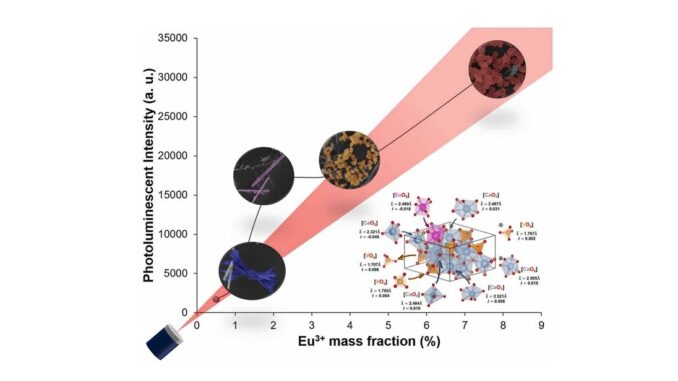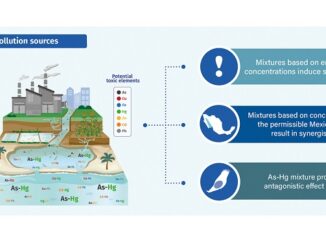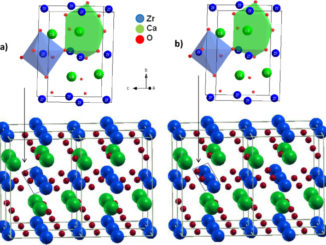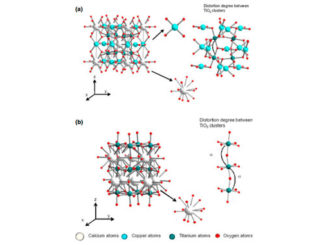
Photoluminescence of Ca10V6O25:Eu3+: A theoretical and experimental approach
Abstract: Ca10−xV6O25:xEu (x = 0%, 0.5%, 1%, 2%, 4%, and 8%) samples were synthesized by the microwave-assisted hydrothermal method at low temperature and short time. The corresponding structures were investigated by X-ray diffraction with Rietveld refinement, Raman spectra, and field emission scanning electron spectroscopy. Eu3+ cations incorporated in Ca10V6O25 provoke a structural disorder with concomitant changes in the morphology. In order to complement and rationalize the structural and electronic effects, computational simulations via density functional theory were employed to rationalize the structural and electronic effects on the constituent clusters of Ca10V6O25 after the Eu3+-doping process. The photoluminescence emission spectra showed characteristic f-f transitions ascribed to Eu3+ cations and broadband related to Ca10V6O25. Besides, the matrix-supported a higher percentage of 8% without the quenching effect. These results indicate the potential applications of the obtained materials in optical devices.
Author(s): Mayara M. Teixeira, Ivo M. Pinatti, José A.S. Laranjeira, Guilherme S.L. Fabris Marcio D. Teodoro, Ieda L.V. Rosa, Alexandre Z. Simões, Juan Andrés, Julio R. Sambrano, Elson Longo
Journal of Alloys and Compounds
Published: 15 April 2024, Volume 980, 173525
DOI: https://doi.org/10.1016/j.jallcom.2024.173525
CDMF
The CDMF, hosted at the Federal University of São Carlos (UFSCar), is one of the Research, Innovation and Dissemination Centers (RIDC) supported by the São Paulo State Research Support Foundation (Fapesp), and also receives investment from the National Council Scientific and Technological Development (CNPq), from the National Institute of Science and Technology of Materials in Nanotechnology (INCTMN).




